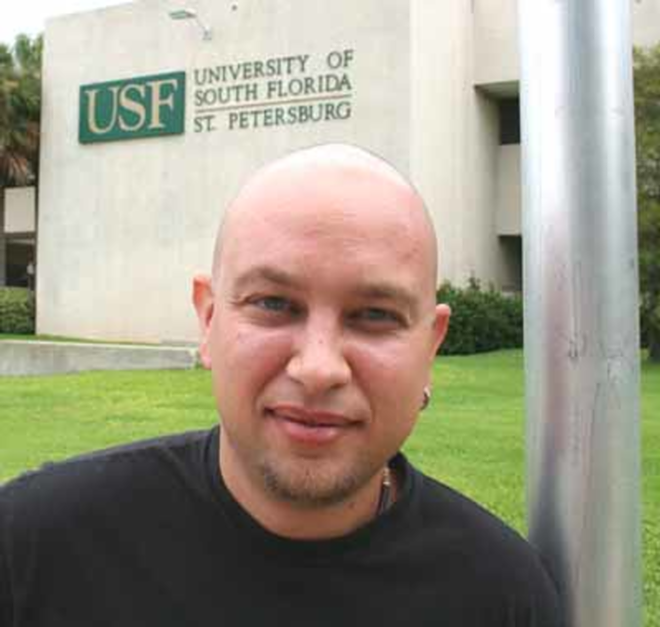On my first day of college, at 26 years old, I assumed I would be the oldest student there. I wasn't even close.
There were a few students in the classroom that day who were closer to retirement than to standard college age. In fact, almost a quarter of college students enrolled in 2007 were over the age of 30, according to the U.S. Department of Education. It's never too late to go back to school. Some of us just need a few extra years of motivation to give it a shot.
In high school I was an unspectacular student who barely scraped by with a diploma. This was not due to a lack of intellect as much as an excess of teenaged angst — a need to rail against authority. If everybody said I needed to go to college, then I was going to try to make it some other way. College seemed like it would be no more than high school on steroids, so I delayed the decision, saying I wanted to wait another year before deciding what to do.
I waited another year eight times, while trying to find a calling that didn't require years of grueling studies and thousands of tuition dollars.
No such luck. Instead, I spent years discovering what it is that I don't want to do with my life. Printing press operator, cultured marble finisher, vacation package salesman, customer service representative; no, no, no and definitely no. I realized my old high school guidance counselor — and my mom (I've got to give her some credit here) — were right: I needed an education. So I nervously enrolled in the institution for those who aren't yet university material: community college.
Because I was so much older than most of my classmates I occasionally felt like the kid who'd been held back (eight times?) in elementary school. I related well with my fellow (younger) students, but sometimes there was a generational disconnect. I wasn't as up on things like MySpace, Facebook, and wearing polo shirts with popped collars. I had never held an iPod; hell, I can actually remember listening to music on vinyl as a kid. And instead of spending my evenings at parties and late nights at the bar, I spent my evenings at work and my nights in the books. I had no choice — I had to support myself. I felt more like a several-years-older brother than a peer.
I had it pretty easy, though — I wasn't old enough to be a classmate's dad. Michael Maharrey, 41, a former journalism classmate at USF St. Petersburg who went back for a second bachelor's degree at age 39, said he only felt awkward because of his age twice; on the first day of class and the time a fellow student pointed out to him that he was older than her mom. Otherwise, Maharrey said working with younger students made him think younger. "You adapt your mindset to those you're around," he said.
Eventually, the years I spent in college around younger students (I graduated at age 31 last weekend) eventually reconnected me to my own youth in some ways. But because I was older and running out of years to accomplish what I wanted, I had a lot more focus and drive than I would have had in my early 20s. This was because I already knew how bad it can be out in the world. By the time I started college, most of my wild oats had been sown and my teenage angst depleted — more like beaten to a bloody pulp — by the realities of adulthood. I understood better than most of my classmates how important college is in the job market and how lucky we all were to be there.
In other words, I brought a measure of experience — and understanding — with me into the classroom. Older students make better students because they "are better able to weed through the information because of their life experiences," Joel Sleight, a 55-year-old former classmate and current St. Petersburg College technology management student, said. Sleight should know — he has been a student for over 30 years and is currently working on his seventh degree, he said. He enjoys being in college with younger students because he sees a younger version of himself in them. By staying in school, Sleight — at least mentally — is perpetually staying young and on top of his field. The physical aging and generational differences are irrelevant.
Taking on college eight years after I graduated high school turned out to be a good decision for me. Yeah, I felt a little awkward at times being older than most of my fellow students. And yeah, I wish I had those extra years to work on my career. But, hey, better late than never.


